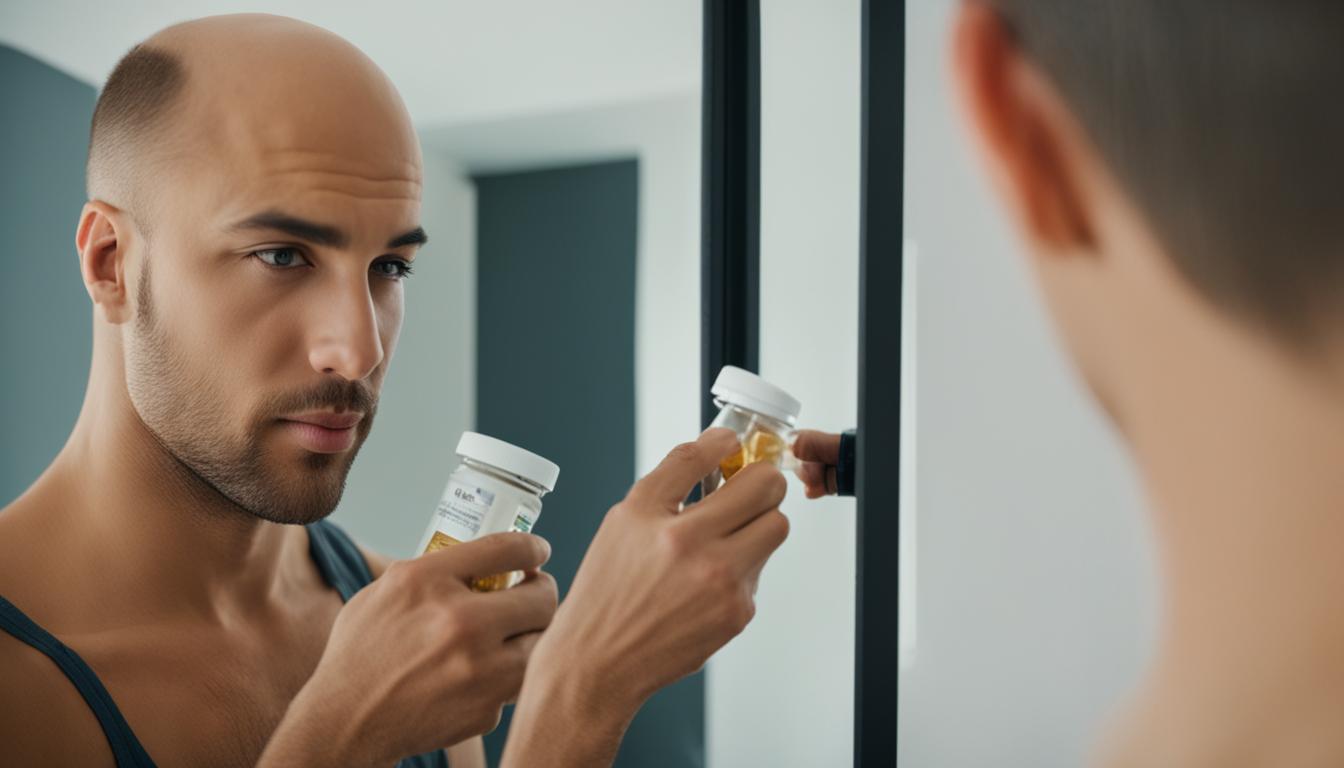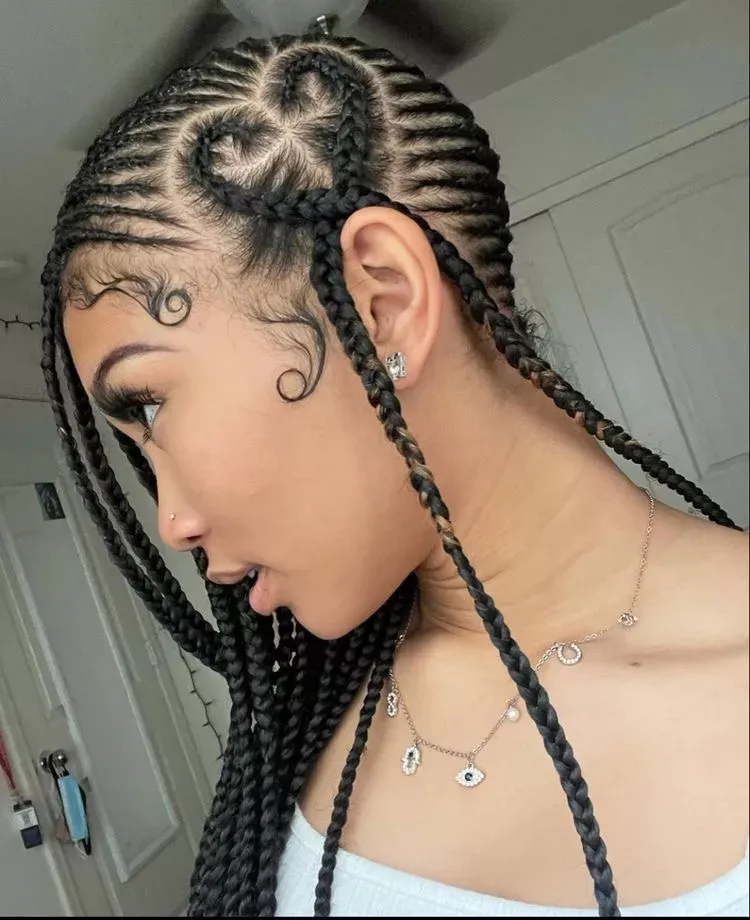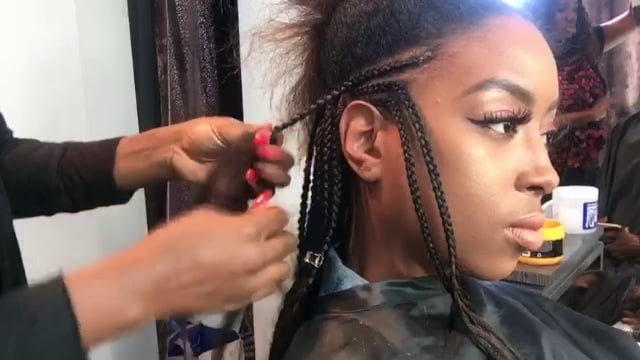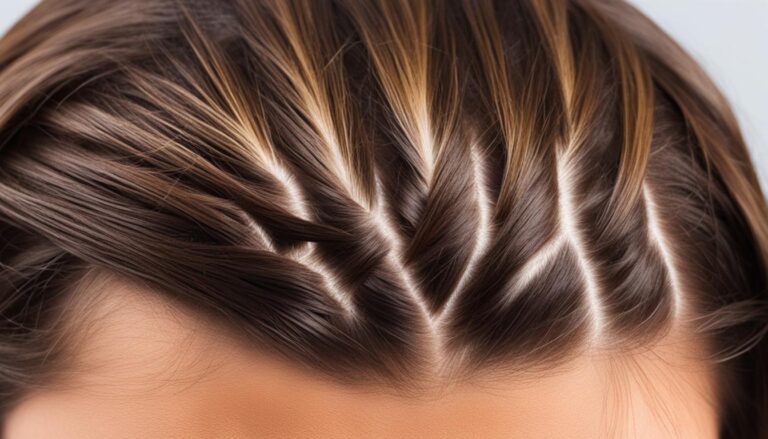Can vitamin D regrow hair?
Hair loss is a common concern for many individuals, and finding effective solutions can be challenging. One nutrient that has gained attention for its potential role in hair growth is vitamin D. Research suggests that vitamin D deficiency may contribute to hair loss and other hair problems, making it important to understand its impact on hair health.
Vitamin D is a vital nutrient that plays a crucial role in various bodily functions. When it comes to hair, vitamin D stimulates the growth of hair follicles and can prevent existing hair from falling out prematurely. It has also been linked to alopecia areata, an autoimmune condition that causes patchy hair loss. However, can vitamin D actually regrow hair and promote hair growth?
Key Takeaways:
- Vitamin D deficiency can contribute to hair loss and hair problems.
- Vitamin D stimulates hair follicles, promoting hair growth and preventing hair loss.
- Alopecia areata, an autoimmune condition, has been linked to vitamin D deficiency.
- Getting adequate vitamin D through sunlight exposure, foods, and supplements can support hair growth.
- Consulting with a healthcare provider is important for personalized vitamin D dosage recommendations.
The Role of Vitamin D in Hair Growth
Vitamin D plays a crucial role in promoting hair growth and maintaining healthy hair follicles. It stimulates the growth of new hair follicles, which are the tiny pores from which new hairs arise. Additionally, vitamin D prevents existing hair from falling out prematurely, contributing to hair thickness and preventing hair loss. Lack of vitamin D can slow down the development of hair follicles, leading to sparse regrowth and increased hair loss.
One way that vitamin D promotes hair growth is by regulating the hair growth cycle. It helps to prolong the anagen phase, which is the active growth phase of hair follicles. By extending this phase, vitamin D supports the continuous growth of hair. Moreover, vitamin D also plays a role in maintaining the health of the scalp, ensuring it stays moisturized and reducing dryness and itchiness that can contribute to hair problems.
To ensure adequate vitamin D levels for hair growth, it is important to consider various sources. Sunlight exposure is a natural and efficient way to boost vitamin D production in the body. Spending 15 to 20 minutes outside per day can provide the necessary sunlight to support vitamin D synthesis. Additionally, incorporating vitamin D-rich foods into the diet, such as fatty fish, eggs, and nuts, can help maintain optimal levels. In cases where a deficiency is present, vitamin D supplements can be a valuable option. It is recommended to consult with a healthcare provider for personalized dosage recommendations and to ensure the appropriate form of vitamin D is used.
Vitamin D deficiency and hair loss
Vitamin D deficiency has been associated with hair loss, including autoimmune hair loss conditions like alopecia areata. Research suggests that individuals with alopecia areata have lower levels of vitamin D compared to those without the condition. Women experiencing other forms of hair loss also tend to have lower vitamin D levels.
A common cause of vitamin D deficiency is lack of sunlight exposure. Sunlight is a natural source of vitamin D, and spending time outdoors can help the body produce this essential nutrient. Additionally, not consuming enough vitamin D-rich foods can contribute to deficiency. Certain medical conditions and medications may also hinder the absorption or synthesis of vitamin D in the body.
Recognizing the symptoms of vitamin D deficiency is crucial. Fatigue, muscle weakness, and an increased susceptibility to infections are common signs of deficiency. It is important to consult with a healthcare provider for proper diagnosis and treatment. They can recommend appropriate supplementation or lifestyle changes to address vitamin D deficiency and potentially help reduce hair loss.
The causes of vitamin D deficiency include:
- Lack of sunlight exposure
- Inadequate dietary intake of vitamin D-rich foods
- Certain medical conditions, such as malabsorption disorders
- Medications that interfere with vitamin D absorption or utilization
Common symptoms of vitamin D deficiency:
- Fatigue
- Muscle weakness
- Increased susceptibility to infections
Addressing vitamin D deficiency through sunlight exposure, consuming vitamin D-rich foods, and supplementation when necessary can help support hair health and potentially reduce hair loss associated with deficiency. However, it is important to consult with a healthcare provider for personalized recommendations and to address any underlying medical conditions contributing to vitamin D deficiency.
Using Vitamin D for Hair Growth
To promote hair growth, there are various ways to incorporate vitamin D into your routine. Here are some effective methods:
- Sunlight exposure: Spending 15 to 20 minutes outside per day can provide an adequate amount of sunlight to support vitamin D production in the body. Just be sure to protect your skin with sunscreen after the recommended time to prevent sunburn.
- Vitamin D-rich foods: Including foods that are naturally rich in vitamin D in your diet can help boost hair growth. Some examples of vitamin D-rich foods include avocados, eggs, fatty fish like salmon and mackerel, nuts, and cheese.
- Vitamin D supplements: If you have a deficiency or struggle to get enough vitamin D from sunlight and food sources, supplements can be a convenient option. They are available in various forms and can be easily incorporated into your daily routine.
It’s important to note that when taking vitamin D supplements, it is recommended to consume them with meals that contain healthful fats. This is because vitamin D is a fat-soluble vitamin, meaning it is better absorbed in the presence of fats. Consulting with a healthcare provider will help determine the appropriate dosage and ensure it meets your specific needs.
Quote:
“Including foods rich in vitamin D and getting enough sunlight exposure are simple yet effective ways to support hair growth.” – Dr. Jessica Jackson, Dermatologist
Remember, consistency is key when incorporating vitamin D into your hair growth routine. It may take some time to see noticeable results, so patience is important. Additionally, it’s always a good idea to consult with a healthcare provider or dermatologist before making any significant changes to your diet or starting a new supplement regimen.
Other Benefits of Vitamin D for Hair and Overall Health
Vitamin D offers a range of benefits for both hair and overall health. Here are some of the key advantages:
- Inflammation Reduction: Vitamin D has anti-inflammatory properties that can help reduce inflammation in the scalp. This can prevent scalp conditions such as dandruff and itching, promoting healthier hair growth.
- Boosts the Immune System: Adequate levels of vitamin D can strengthen the immune system, reducing the risk of autoimmune conditions that can affect hair health. A robust immune system can combat hair loss caused by conditions like alopecia areata.
- Scalp Health: Vitamin D plays a vital role in maintaining a healthy scalp. It keeps the skin moisturized, preventing dryness and itchiness that can lead to hair problems. A well-nourished scalp provides an ideal environment for hair growth.
- Bone Health: Vitamin D is crucial for maintaining strong and healthy bones. It aids in the absorption of calcium, contributing to bone density. This is essential for overall well-being and can indirectly support hair health.
- Heart Health: Studies suggest that vitamin D may have a protective effect on heart health. It may help reduce the risk of cardiovascular diseases, which can indirectly benefit hair health by ensuring a healthy blood supply to the scalp.
- Skin Rejuvenation: Vitamin D has been found to promote skin rejuvenation and wound healing. It can improve the overall appearance of the skin, including the scalp, which can positively impact hair health.
These are just some of the many ways in which vitamin D can support both hair and overall health. By ensuring adequate levels of vitamin D, individuals can enjoy the benefits of healthier hair, a nourished scalp, and improved well-being.

The Importance of Vitamin D in the Immune System
Vitamin D plays a critical role in maintaining a strong and efficient immune system. It helps regulate both the innate and adaptive immune responses, promoting overall immune function. Vitamin D acts as an immune-modulator, influencing various components of the immune system, including the production and activity of immune cells.
Research suggests that vitamin D deficiency can impair immune function and increase the risk of infections and autoimmune diseases. Adequate levels of vitamin D can enhance the immune response, reducing the risk of infections and supporting overall health.
It is important to note that while vitamin D can contribute to a healthy immune system, it is not a cure for diseases or a substitute for medical treatment. Maintaining a balanced and nutritious diet, along with regular exercise and good sleep hygiene, are also essential for maintaining a strong immune system.
Different Forms of Vitamin D and Their Sources
Vitamin D is available in different forms, namely vitamin D2 and vitamin D3. Each form has its own unique sources and benefits. Understanding the differences can help individuals choose the right form of vitamin D to meet their needs.
Vitamin D2
Vitamin D2, also known as ergocalciferol, is derived from plants and yeast. It can be found in fortified foods such as cereal, orange juice, and dairy alternatives. Mushrooms also contain small amounts of vitamin D2. For those following a vegan or vegetarian diet, vitamin D2 is a suitable option as it is plant-based.
Vitamin D3
Vitamin D3, also known as cholecalciferol, is primarily obtained from animal-based sources. Some dietary sources of vitamin D3 include fatty fish (such as salmon and mackerel), cod liver oil, beef liver, cow milk, and egg yolks. These sources are rich in vitamin D3 and can help meet the body’s needs.
Additionally, the human body can naturally produce vitamin D3 when the skin is exposed to sunlight. Sunlight triggers a chemical reaction that converts cholesterol in the skin into vitamin D3. However, the amount of vitamin D3 produced through sunlight exposure varies depending on factors such as geographical location, time of year, time of day, and skin pigmentation.
For those who may have difficulty obtaining adequate vitamin D from sunlight or dietary sources, vitamin D supplements are available. These supplements come in various forms, including capsules, tablets, and liquid drops. It is important to consult with a healthcare provider to determine the appropriate dosage and form of supplementation based on individual needs.
Conclusion
In conclusion, vitamin D is a crucial nutrient for hair growth and can help combat hair loss associated with deficiencies. Adequate levels of vitamin D stimulate the growth of hair follicles, promote the development of new follicles, and prevent premature hair loss.
It is important to address vitamin D deficiency through a combination of sunlight exposure, vitamin D-rich foods, and supplements. Spending time outside in the sun, consuming foods like avocados and fatty fish, and considering vitamin D supplements can all support hair growth and regrowth.
However, it is worth noting that further research is needed to conclusively demonstrate the benefits of vitamin D supplementation for specific hair loss conditions. If you are experiencing hair loss, it is recommended to consult with a healthcare provider to determine the best approach for your individual needs.
FAQ
Can vitamin D regrow hair?
Vitamin D stimulates hair follicles to grow and can prevent existing hair from falling out prematurely. However, further research is needed to conclusively demonstrate the benefits of vitamin D supplementation for hair regrowth.
What is the role of vitamin D in hair growth?
Vitamin D plays a crucial role in the creation of new hair follicles and stimulates the growth of existing ones. It promotes hair thickness and helps prevent hair loss.
Can vitamin D deficiency cause hair loss?
Yes, research shows that a deficiency in vitamin D can lead to hair loss and other hair problems. It has been linked to conditions like alopecia areata, an autoimmune hair loss condition.
How can I use vitamin D for hair growth?
You can increase your vitamin D intake through sunlight exposure, consuming vitamin D-rich foods, and taking vitamin D supplements. Spending time outside, eating foods like avocados and fatty fish, and taking supplements can support hair growth.
What are the other benefits of vitamin D for hair and overall health?
Vitamin D helps reduce inflammation, protects the scalp and hair follicles, strengthens the immune system, and improves scalp health. It also contributes to bone health, heart health, skin rejuvenation, and wound healing.
What are the different forms of vitamin D and their sources?
Vitamin D exists in the forms of vitamin D2 and vitamin D3. Vitamin D2 can be found in plants, fortified foods, and dietary vitamins, while vitamin D3 is derived from animal-based sources like fatty fish, cod liver oil, and eggs. Sunlight exposure also helps the body produce vitamin D naturally. Vitamin D supplements are available in various forms.
What is the conclusion on using vitamin D for hair growth?
Adequate levels of vitamin D support hair growth, prevent hair loss, and offer various other health benefits. It is important to address any vitamin D deficiency through a combination of sunlight exposure, vitamin D-rich foods, and supplements. Consult with a healthcare provider for personalized recommendations.







